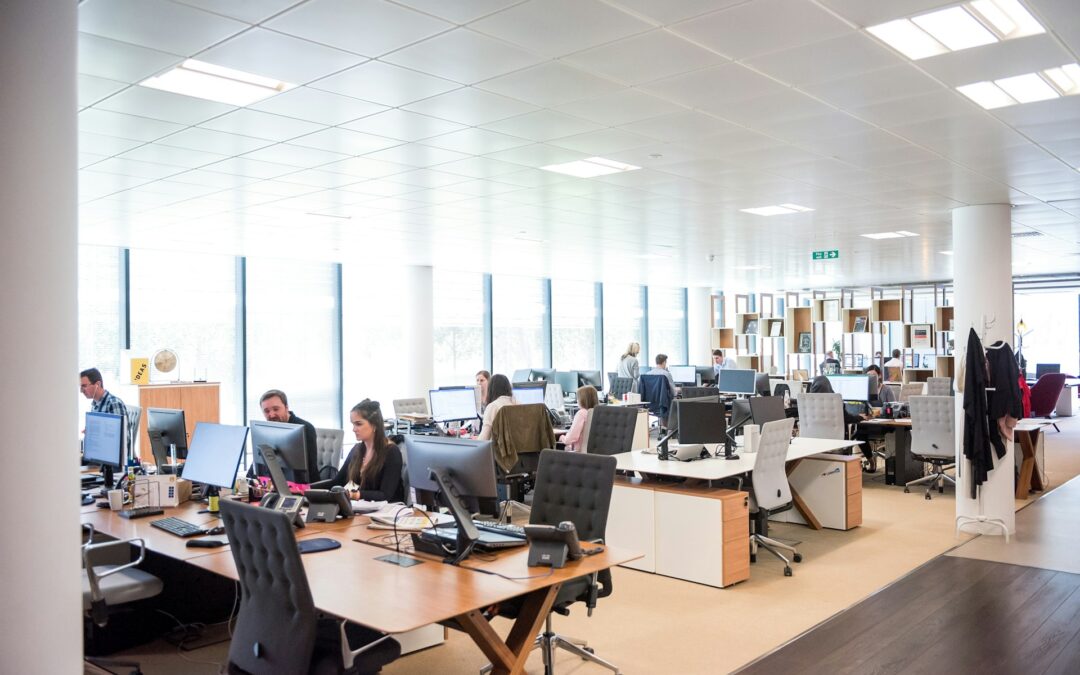In a word – yes. But there’s more to it than that…
The pandemic had an immense impact on the UK and almost every third sector organisation, prompting teams to work from home almost overnight.
Though, what started as a strategy to keep staff safe simply accelerated a step-change that was already happening.
Many larger businesses have allowed staff to work on their terms for some time, starting the revolution in working environments that was further embraced through the lockdowns.
During the first lockdown, TalkTalk Business surveyed thousands of employees across hundreds of businesses, finding that 31% expect that in the future, people will split their time between home and place of work equally.
But what is hybrid working, and is it right for your charity? Let’s find out!
What is hybrid working?
As the name suggests, hybrid working is a flexible work scheme made up of two different ways of working – remote work and office work. A hybrid worker will spend some time working from home and some in the office – meaning their working life combines the best features of both systems.
85% of TalkTalk’s respondents confirmed their work/life balance improved, or was the same, in the [first] 3 months [of lockdown].
But there are multiple hybrid work models which each have their pros and cons:
Static hybrid
Employees have fixed work locations, either in the office or at home. Most likely dependant on their role in the business and whether particular responsibilities have to be managed on-site, such as logistics.
Dynamic hybrid
Staff decide where they want to work from, in the office or remotely, on a day-to-day basis. This is perfect for staff that have unpredictable home commitments or long commutes.
Synchronised hybrid
Team members split time between home and the office, but staff are all in the office on the same days, reducing time wasted on calls and emails etc., as teams can collaborate quicker face-to-face when they’re in the office.
Fully remote
All employees work from wherever they want, with no need to commute to a specific site, meaning there’s no need for an expensive office to run!
Choosing a suitable hybrid model will depend on your charity’s size, budget, operations, and challenges. So, considering the benefits and drawbacks of each will help you find the most suitable solution for the long-term.
How does hybrid working affect charities?
While hybrid working obviously has a positive effect on staff and volunteer’s home lives, there are many operational benefits of implementing a hybrid working strategy too:
Happy staff = Happy customers
If your teams are happier in their home lives, that positive energy will come through their work too. Better customer service scores, more productive sessions and overall better morale across the organisation are all common within operations that have developed a successful hybrid working policy.
Furthermore, 69% of at-will hybrid workers and 66% of remote workers described themselves as feeling more productive at work, as opposed to the much lower 32% of on-site workers.
Lower costs = Better services
While there may be some initial costs to invest in new technology, hybrid working can provide many cost savings. This includes reducing or eliminating the need for expensive office rentals and utilities, general supplies as well as the commuting costs of staff and volunteers!
The money you save can then be re-invested into the organisation where you find it’s most needed, leading to a better experience for workers and service-users!
More than half (53%) are thinking about downsizing their main place of work in response to the rise of homeworking, which increases to 61% amongst businesses with more than 20 employees!
Hybrid working = Stronger communication
Hybrid working provides a ‘best of both worlds’ solution to many communication issues. For example, many hybrid working voice solutions (allowing staff and volunteers to take charity calls from their own devices) include call recording, that can then be used for further training and improvements, while also ensuring a robust record of all discussions for any safeguarding or disciplinary requirements.
More Flexibility = Higher retention
Reed’s ‘Skills for success’ survey from November 2020 found that a better work-life balance was a major attraction for workers looking for a new job during the pandemic at 35%, as well as not feeling valued by their employer (34%). In essence, this means that hybrid working can help you keep the great staff you already have, and attract new team members with a higher success rate.
For more info on how to develop a charity hybrid working strategy, download our E-book!
All told, charity hybrid working can help alleviate multiple industry-wide challenges, such as limited budgets, increasing demand and staff morale. Taking all four of the benefits above; reducing your office space or eliminating it altogether would help your budget stretch further, possibly enabling you to invest in even more new technology to help staff deliver a better service to your community.
And your staff are in a more positive state of mind – thanks to splitting their time between home and the office – and have the modern technology required to deliver the best service possible. Which means your community is going to be more satisfied, leading to an increase in promotion of your organisation through word of mouth, more donations and, in turn the ability to grow your team and services!
The 2025 Switch Off
Our final point on why charities should be looking to embrace hybrid working is regarding a massive upgrade to the infrastructure that connects everyone in the UK.
As part of BT and Openreach’s plans to upgrade the entire country to gigabit-capable internet connections, the companies have decided to permanently deactivate the traditional ‘landline’ networks that have been running for decades.
With over 500 locations in the UK now unable to purchase new ‘legacy’ phone lines – and most others coming in the next couple of years – charities will have to upgrade to an internet-based calling solution (the kind that hybrid working also requires – VoIP, Hosted Voice, Unified Communications etc.) or their lines will fall silent as they move into 2026.
And upgrading sooner rather than later, will also mean your team isn’t scrambling to get used to a new system last minute, or you struggling to find a tech partner at the same time as all the other businesses and charities that put off their upgrades.
Your perfect IT partner
Voluntary Services Group has helped over 500 charities take advantage of hybrid working with better, more cost-effective IT and communications solutions.
We want to be your long-term technology partner, working together with you to leverage future-proof connectivity and communications, while our managed IT support services takes any security or IT management headaches away from your team, and makes them our own.
With over a decade of experience, we use our broad experience in supporting the charity and non-profit sector to designs solutions that exceed your current needs, so you can focus on what matters most – your community.
And to prove how much we’re invested in our customers’ success, we donate part of our revenue each month to one of our customers’ causes.
As your charity returns to normal, you may find that you require a significant IT upgrade to deploy a hybrid working strategy across the organisation, but that doesn’t necessarily mean extra costs!
We regularly save our customers 30% compared to their previous IT and communications spend and we can do the same for you!
Call us on 0330 0940 170 or book a call to start your journey to a more flexible, future-proof way of working!





